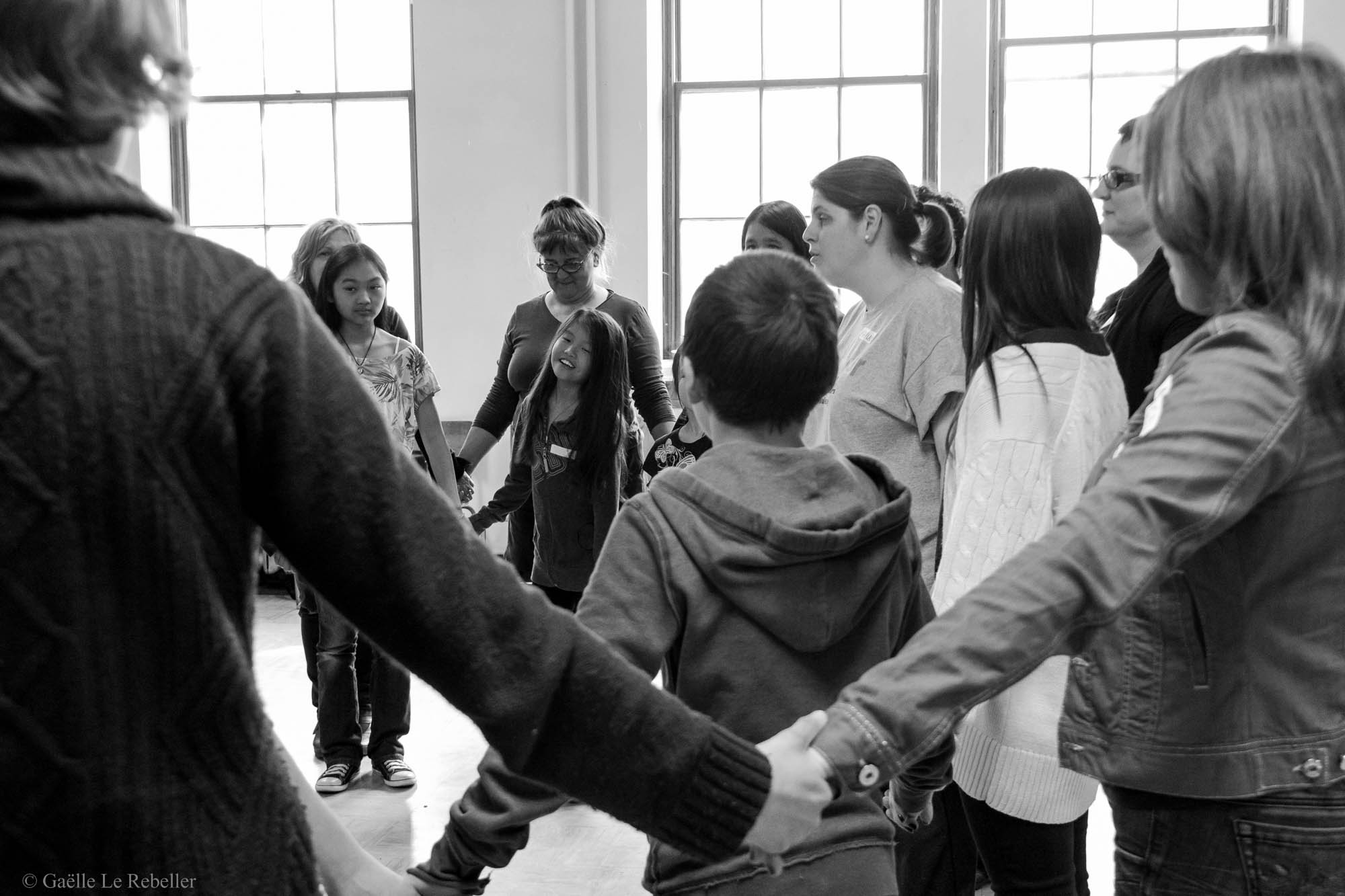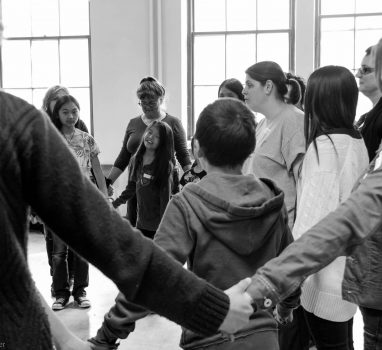(With appreciation to Dr. Stephen R. Covey for his excellent book The 7 Habits of Highly Effective People)
1. Put Safety First
We protect the emotional and physical safety of our staff, students, audience, volunteers, clients, supporters, and everyone else. We put safety before realism, drama, humor, fun, convenience, offense, discomfort, or embarrassment.
2. Celebrate Every Step Of The Way
Understand that success means progress, not perfection. Remember that learning from our mistakes is what helps us to grow. Often, failure is just “not success yet” and sometimes we have to do things wrong before we can do them right. We don’t have to be perfect to be great.
3. Work Hard and Always Seek Ways to Make Things Better
Take time, endure discomfort, and examine cherished ideals continuously to ensure that everything you say, do, or choose to believe is congruent with the agreed-upon purpose. Be pro-active and generous in making the “whole” work excellently in addition to your own part. Make it easy for people to give you feedback and communicate your concerns with others directly, respectfully, and clearly.
4. Know the Purpose
Take responsibility for understanding the purpose of every action you take and every word you speak. Do or say nothing as a habit, a ritual, a familiar behavior pattern, or only because someone in a position of authority said so. Ask questions until you are sure you understand why you are doing what you are doing.
5. Pay Attention to What’s Going On
Listen. Look. Feel. Smell. Remember. Get information about what is happening in the moment with each person and with the whole group. Treat information from telephones, computers, and paperwork with the same care and attention as an important person in front of you. Adapt your actions, the environment, the procedures, and the content to fit what is most important for accomplishing the purpose in each specific situation. Notice the effect of what you say and do on others. Make changes to get the results you want. Remember that the meaning of a communication is the result it produces.
6. Perceive Behavior Without Judging Intentions
Try to observe what someone is saying or how someone is acting objectively rather than deciding what someone else is feeling or thinking. Interpretations that go beyond someone’s actual behavior are often inaccurate. Understand that most people do what they do for reasons that seem good to them. If there is a problem, look for solutions, not for blame. if there is a disagreement, your best to show understanding and respect for the other person’s perspective even if you don’t agree.
7. Take Responsibility for Your Own Feelings and Actions
Know your triggers, distractions, and psychological defense structures. Work at making decisions rather than being on automatic pilot.. Remember that you can choose how you are going to feel and what you are going to do, no matter what someone else chooses to feel or do. Decide to be fully present, projecting a positive attitude, and careful in your work no matter what else is going on or what your feelings are at the moment. Know your failure modes and plan for them.
8. Respect Others
Notice your prejudices and stereotypes and do not let them rule you. It is normal to have preconceived ideas about other individuals and groups, but it is important to work with people from as neutral and un-biased a place as possible. Invest the time and risk necessary to acknowledge and work out misunderstandings and disagreements. Be committed to understanding and respecting the perceptions of others, even when you disagree with them or they are presented rudely, because other points of view offer useful information. Remember that different does not mean wrong. Cherish others for their differences as well as for the ways in which you are the same.
9. Speak Up About Problems and Ask for Help
In any important relationship, miscommunications and mistakes are very likely to happen between people. What is important is how we work these problems out. Instead of having problems end up damaging relationships and trust, these can become opportunities to learn and grow from each other.
If another Kidpower team member’s behavior is causing problems for you, speak up directly and respectfully as soon as possible. Remember that feedback is a gift – and that healthy relationships require good communication, understanding of different perspectives, respect for differences, and boundaries. If you get stuck, ask for help in communicating directly with this person. Mediation can work miracles as long as both people are committed to having a positive relationship and the mediator is someone they both trust.
If you have problems with the behavior of anyone including team members at any level, students, or partner organizations, or if you feel stuck in moving forward yourself, ask for help. Others have traveled your path. Learn from their experiences. No one knows more than all of us.
10. Embrace Change
If you are uncomfortable about change, accept that these feelings are normal, but that change is an essential part of life. Because evolution is more comfortable and less destructive than revolution, try to anticipate and plan for change. Be prepared to be flexible in the moment if something happens suddenly. Welcome new ideas. Keep re-examining your comfortable way of doing things. Work with change rather than against it.


